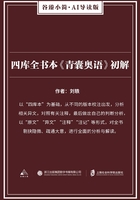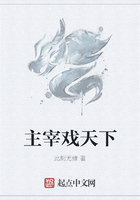Four of the leading Presbyterian ministers of the Back Country issued a letter in condemnation of the Regulators. One of these ministers was the famous David Caldwell, son-in-law of the Reverend Alexander Craighead, and a man who knew the difference between liberty and license and who proved himself the bravest of patriots in the War of Independence. The records of the time contain sworn testimony against the Regulators by Waightstill Avery, a signer of the Mecklenburg Resolves, who later presided honorably over courts in the western circuit of Tennessee; and there is evidence indicating Jacobite and French intrigue. That Governor Tryon recognized a hidden hand at work seems clearly revealed in his proclamation addressed to those "whose understandings have been run away with and whose passions have been led in captivity by some evil designing men who, actuated by cowardice and a sense of that Publick Justice which is due to their Crimes, have obscured themselves from Publick view." What the Assembly thought of the Regulators was expressed in 1770 in a drastic bill which so shocked the authorities in England that instructions were sent forbidding any Governor to approve such a bill in future, declaring it "a disgrace to the British Statute Books."
On May 16, 1771, some two thousand Regulators were precipitated by Husband into the Battle of Alamance, which took place in a district settled largely by a rough and ignorant type of Germans, many of whom Husband had lured to swell his mob. Opposed to him, were eleven hundred of Governor Tryon's troops, officered by such patriots as Griffith Rutherford, Hugh Waddell, and Francis Nash.
During an hour's engagement about twenty Regulators were killed, while the Governor's troops had nine killed and sixty-one wounded. Six of the leaders were hanged. The rest took the oath of allegiance which Tryon administered.
It has been said about the Regulators that they were not cast down by their defeat at Alamance but "like the mammoth, they shook the bolt from their brow and crossed the mountains," but such flowery phrases do not seem to have been inspired by facts.
Nor do the records show that "fifteen hundred Regulators" arrived at Watauga in 1771, as has also been stated. Nor are the names of the leaders of the Regulation to be found in the list of signatures affixed to the one "state paper" of Watauga which was preserved and written into historic annals. Nor yet do those names appear on the roster of the Watauga and Holston men who, in 1774, fought with Shelby under Andrew Lewis in the Battle of Point Pleasant. The Boones and the Bryans, the Robertsons, the Seviers, the Shelbys, the men who opened up the West and shaped the destiny of its inhabitants, were genuine freemen, with a sense of law and order as inseparable from liberty. They would follow a Washington but not a Hermon Husband.
James Hunter, whose signature leads on all Regulation manifestoes just prior to the Battle of Alamance, was a sycophant of Husband, to whom he addressed fulsome letters; and in the real battle for democracy--the War of Independence--he was a Tory. The Colonial Records show that those who, "like the mammoth," shook from them the ethical restraints which make man superior to the giant beast, and who later bolted into the mountains, contributed chiefly the lawlessness that harassed the new settlements. They were the banditti and, in 1776, the Tories of the western hills; they pillaged the homes of the men who were fighting for the democratic ideal.
It was not the Regulation Movement which turned westward the makers of the Old Southwest, but the free and enterprising spirit of the age. It was emphatically an age of doers; and if men who felt the constructive urge in them might not lay hold on conditions where they were and reshape them, then they must go forward seeking that environment which would give their genius its opportunity.
Of such adventurous spirits was James Robertson, a Virginian born of Ulster Scot parentage, and a resident of (the present) Wake County, North Carolina, since his boyhood. Robertson was twenty-eight years old when, in 1770, he rode over the hills to Watauga. We can imagine him as he was then, for the portrait taken much later in life shows the type of face that does not change. It is a high type combining the best qualities of his race. Intelligence, strength of purpose, fortitude, and moral power are there; they impress us at the first glance. At twenty-eight he must have been a serious young man, little given to laughter; indeed, spontaneity is perhaps the only good trait we miss in studying his face. He was a thinker who had not yet found his purpose--a thinker in leash, for at this time James Robertson could neither read nor write.
At Watauga, Robertson lived for a while in the cabin of a man named Honeycut. He chose land for himself and, in accordance with the custom of the time, sealed his right to it by planting corn.
He remained to harvest his first crop and then set off to gather his family and some of his friends together and escort them to the new country. But on the way he missed the trail and wandered for a fortnight in the mountains. The heavy rains ruined his powder so that he could not hunt; for food he had only berries and nuts. At one place, where steep bluffs opposed him, he was obliged to abandon his horse and scale the mountain side on foot.
He was in extremity when he chanced upon two huntsmen who gave him food and set him on the trail. If this experience proves his lack of the hunter's instinct and the woodsman's resourcefulness which Boone possessed, it proves also his special qualities of perseverance and endurance which were to reach their zenith in his successful struggle to colonize and hold western Tennessee.
He returned to Watauga in the following spring (1771) with his family and a small group of colonists. Robertson's wife was an educated woman and under her instruction he now began to study.















